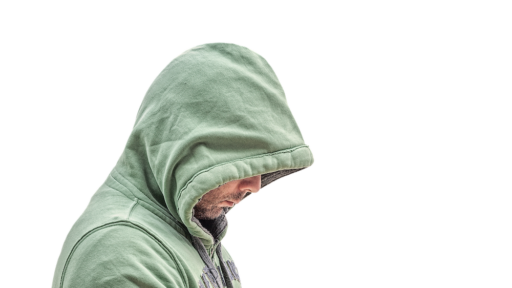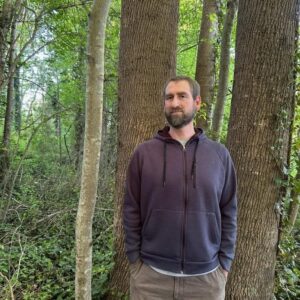It was my Canadian sister and sister-in-law who turned me on to Mary Lawson’s novels. Lawson is Canadian, and rural northern Ontario is the setting for all four of her novels so far: Crow Lake (2002), The Other Side of the Bridge (2006), Road Ends (2013), and A Town Called Solace (2021).
I talk with sister Amy every Sunday. So while I was reading Lawson, that’s naturally what we talked about. One time Amy said: “Her novels are about the trouble we make for ourselves when we don’t talk about things.” I see this especially in two of the novels.
First, in Crow Lake. Narrator Kate focuses on two periods in her life: her childhood in the northern Ontario town of Crow Lake; and her current adult life in Toronto, where—with a doctorate in biology—she teaches at the same university as her boyfriend Daniel. The transformative event of her childhood was the death of her parents in a car accident. She, her two older brothers Luke and Matt, and her little sister Bo, were suddenly orphans. But Luke gave up his college education to raise the girls and to give Matt his opportunity to go to college. Through childhood, Kate has idolized Matt, who has mentored her lovingly. The special activity they’ve shared is to lie on their stomachs at the edge of “their” pond and look deep down into its swarming life. All this suddenly ends when Matt impregnates neighboring Marie and drops out of college to marry her, giving up the university education which had been his dream.
But for reasons she herself doesn’t understand, Kate doesn’t talk to Daniel about any of this. She silently mourns what she sees as the “tragedy” of Matt’s life—the loss of his dream—and she rarely can bear going home to visit.
Unexpectedly, it’s Daniel who breaks the logjam in Kate’s psyche. In the novel’s two final chapters, Kate brings Daniel to Crow Lake for the eighteenth birthday party for Matt and Marie’s son Simon. Then it’s Daniel, who’s meeting the family for the first time and has learned almost nothing about them previously from Kate, who “sees” what the real tragedy is: not that Matt was denied his dream (Daniel says he came to terms with that years ago) but that Kate hasn’t given up her sense of Matt’s loss. As Daniel puts it to Kate: Matt “had his chance [for education] and he blew it, which is a real shame. But it’s just a shame. It’s not a tragedy. It makes no difference to who Matt is.… The tragedy is that you think it’s so important. So important you’re letting it destroy the relationship the two of you had.”
Kate is gratefully chastened—as imaged in the book’s final scene. She, Matt, and Daniel go to “their” pond, lying down all together to peer into it.
Lawson’s third novel, Road Ends, dramatizes two different kinds of trouble we make for ourselves when we don’t talk about what’s deep inside us. Here Lawson uses a technique she continued in her following novel: naming chapters after the character whose mind we’ll be in. In Road Ends, the characters are in the same family: father Edward and adult children Tom and Megan.
Megan has been keeping the family going ever since her mother withdrew into herself, victim of (undiagnosed) early onset dementia. But at the novel’s start, Megan has had enough—and goes off to London to “live her own life.” It’s Tom and Edward who are (for different reasons) unable to talk about what’s deep inside them.
Tom is locked in himself—avoiding talking with or even seeing other people—after he discovers the body of his best friend Robert, who has committed suicide. Robert had been driving drunk when he hit a girl on her bike, killing her. Evidently Robert couldn’t bear his guilt, but Tom feels unreasonably responsible for Robert’s death.
With an MSc in aeronautical engineering, Tom had planned a career in aerodynamics. But after Robert’s suicide, he instead returns to live at home, driving a snowplow (perfect job for him in his emotionally immobilized state, since he doesn’t have to interact with people). Otherwise he sits at home, burying himself (the metaphor is almost literal) in the daily newspaper, his chair turned to face the wall.
Meanwhile, Tom’s father Edward encloses himself in his study, ignoring his family’s needs. He’s unaware of his wife’s dementia, as the household deteriorates to the point where all the food in the fridge is spoiled, and four-year-old Adam not only goes hungry but (presumably because he’s totally ignored) starts wetting his bed at night.
Edward’s reason for self-enclosure is that he can’t bear his own family. His teenage sons Peter and Corey, always fighting loudly, drive him wild; his only way of addressing them is to yell at them—which he hates, but he can’t stop himself. Manager of the local bank, he starts eating his meals there to avoid his home. “Sometimes I am tempted to move into the bank,” he muses. “Take up residence there rather than coming home to a fresh set of problems every night. An added bonus would be that bank doesn’t smell; there’s a very unpleasant smell in the house.” But he doesn’t look into the smell’s causes…doesn’t consider it his responsibility.
Instead, what Edward is wrapped up in is his childhood: his father’s drunken brutality, his mother’s long-suffering goodness. (Edward’s chapters are the only ones in first person—because, I surmise, so much of his narrative is memories.) He’s reading through his mother’s diaries, trying to know her better and to understand why she stayed with her abusive husband.
But Lawson won’t leave her characters locked up in their private despairs—either here or in Crow Lake. In the final chapters of Road Ends, Robert’s father, desiring to relieve Tom of his guilt over Robert’s suicide, comes to the house to “confess” what he feels as his own culpability. His reasoning is too complex to go into here, but the point is that the revelation works: it loosens something inside Tom, freeing him to interact with others. He helps four-year-old brother Adam with diapers for bedtime…then considers the possibility of taking a job with Boeing in Seattle.
And Edward’s musings end hopefully: Watching his wife Emily and their newest baby asleep, Edward wonders “if there were any possibility that I could be a good father to him, this late in the day.”
In both Crow Lake and Road Ends, there’s an underlying vision (and actually in Lawson’s other two novels as well): how we need each other—need to openly interact with one another—in order to lead full lives.
I’m reminded of John Donne’s poem:
No man is an island, Entire of itself; Every man is a piece of the continent, A part of the main.
I picture Lawson’s island characters moving (or being moved) to re-attach themselves to the continent where they belong.
Peggy Rosenthal has a PhD in English Literature. Her first published book was Words and Values, a close reading of popular language. Since then she has published widely on the spirituality of poetry, in periodicals such as America, The Christian Century, and Image, and in books that can be found here.





